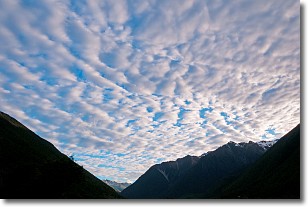Weather Alert in Iowa
Flood Warning issued August 2 at 10:37AM CDT until August 4 at 3:00PM CDT by NWS Quad Cities IA IL
AREAS AFFECTED: Linn, IA
DESCRIPTION: ...The Flood Warning is extended for the following rivers in Iowa... Cedar River near Conesville affecting Muscatine and Louisa Counties. Iowa River at Marengo affecting Benton and Iowa Counties. ...The Flood Warning continues for the following rivers in Iowa... Cedar River at Cedar Rapids affecting Linn County. Iowa River at Wapello affecting Louisa County. Iowa River at Oakville affecting Louisa County. * WHAT...Minor flooding is forecast. * WHERE...Cedar River at Cedar Rapids. * WHEN...From Sunday afternoon to Monday afternoon. * IMPACTS...At 11.5 feet, Water affects Osborn Park in Cedar Rapids. * ADDITIONAL DETAILS... - At 10:00 AM CDT Saturday the stage was 11.7 feet. - Forecast...The river is expected to rise to a crest of 12.0 feet early tomorrow afternoon. It will then fall below flood stage Monday morning. - Flood stage is 12.0 feet.
INSTRUCTION: Turn around, don't drown when encountering flooded roads. Most flood deaths occur in vehicles. Caution is urged when walking near riverbanks. The next statement will be issued bySunday morning at 1045 AM CDT.
Want more detail? Get the Complete 7 Day and Night Detailed Forecast!
Current U.S. National Radar--Current
The Current National Weather Radar is shown below with a UTC Time (subtract 5 hours from UTC to get Eastern Time).

National Weather Forecast--Current
The Current National Weather Forecast and National Weather Map are shown below.

National Weather Forecast for Tomorrow
Tomorrow National Weather Forecast and Tomorrow National Weather Map are show below.

North America Water Vapor (Moisture)
This map shows recent moisture content over North America. Bright and colored areas show high moisture (ie, clouds); brown indicates very little moisture present; black indicates no moisture.

Weather Topic: What are Stratus Clouds?
Home - Education - Cloud Types - Stratus Clouds
 Next Topic: Wall Clouds
Next Topic: Wall Clouds
Stratus clouds are similar to altostratus clouds, but form at a
lower altitude and are identified by their fog-like appearance, lacking the
distinguishing features of most clouds.
Stratus clouds are wider than most clouds, and their base has a smooth, uniform
look which is lighter in color than a nimbostratus cloud.
The presence of a stratus cloud indicates the possibility of minor precipitation,
such as drizzle, but heavier precipitation does not typically arrive in the form
of a stratus cloud.
Next Topic: Wall Clouds
Weather Topic: What are Altocumulus Clouds?
Home - Education - Cloud Types - Altocumulus Clouds
 Next Topic: Altostratus Clouds
Next Topic: Altostratus Clouds
Similar to cirrocumulus clouds, altocumulus clouds are
characterized by cloud patches. They are distinguished by larger cloudlets
than cirrocumulus clouds but are still smaller than stratocumulus clouds.
Altocumulus clouds most commonly form in middle altitudes (between 2 and 5 km)
and may resemble, at times, the shape of a flying saucer.
These uncommon formations, called altocumulus lenticularis, are created by uplift
in the atmosphere and are most often seen in close proximity to mountains.
Next Topic: Altostratus Clouds
Current conditions powered by WeatherAPI.com




